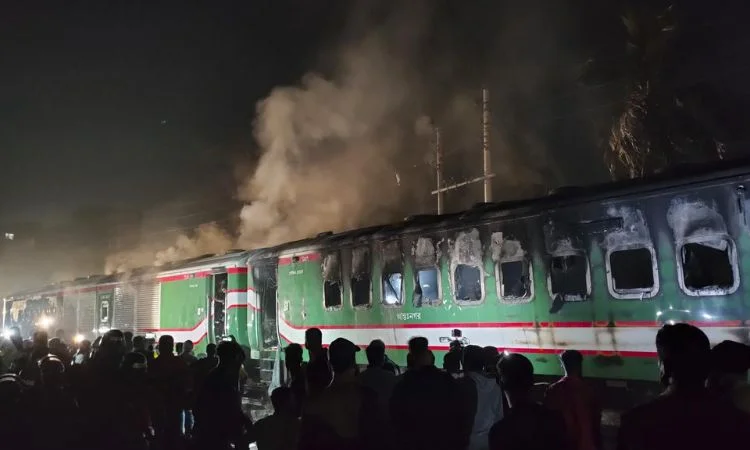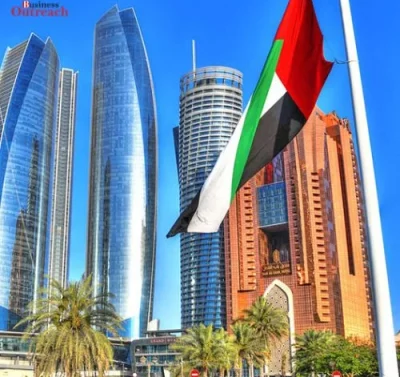
A devastating fire on a passenger train in Bangladesh just one day before nationwide elections has led to calls of foul play from opposition groups. On Friday evening, as the Benapole Express was nearing the capital city of Dhaka carrying nearly 300 passengers returning from neighboring India, four carriages quickly became engulfed in flames.
According to officials, the ferocious blaze was difficult to control and took firefighters over an hour to fully extinguish. Sadly, four people lost their lives in the inferno, including at least one child, while eight others sustained varying injuries. With elections scheduled for the very next day, the tragic timing of the incident has raised suspicions of deliberate sabotage from anti-government forces hoping to destabilize the polls.
The leading opposition Bangladesh Nationalist Party (BNP), which is boycotting Sunday’s general election, strongly condemned the train fire and demanded an impartial international probe. Calling it a “brutal atrocity”, the party suspects foul play was involved given the election context. They point out the act was certainly “pre-planned” by perpetrators aiming to cause disruption and violence.
However, authorities have only stated the cause is still under investigation. Railway police commented it “seems” to have been deliberately set, though more information is needed. Fire service officials also could not instantly rule out arson as a possibility based on how quickly the flames engulfed multiple carriages simultaneously.
Prime Minister Sheikh Hasina, who is seeking a record fourth term through her ruling Awami League party, expressed her condolences for the casualties. Yet she did not acknowledge the opposition’s sabotage theory and instead simply directed authorities to look into whether arson had occurred.
The train inferno comes amid already tense pre-election conditions and a boycott called by the BNP-led alliance. They criticize the polls as predetermined in favor of Hasina and an alleged unlevel playing field. Concerns over political violence and a lack of transparency have led international observers to closely monitor Sunday’s vote.
With questions lingering over how the lethal blaze began, its timing threatens to further inflame political tensions and undermine public confidence in Bangladesh’s democratic process. Definitive answers are necessary to establish the true nature of this tragedy.
While investigations continue, political unrest remains a grave threat as emotions run high during such a pivotal national election. All sides must exercise restraint and allow peaceful, lawful solutions to prevent further loss of life or risk of instability overshadowing the country’s democratic traditions.















